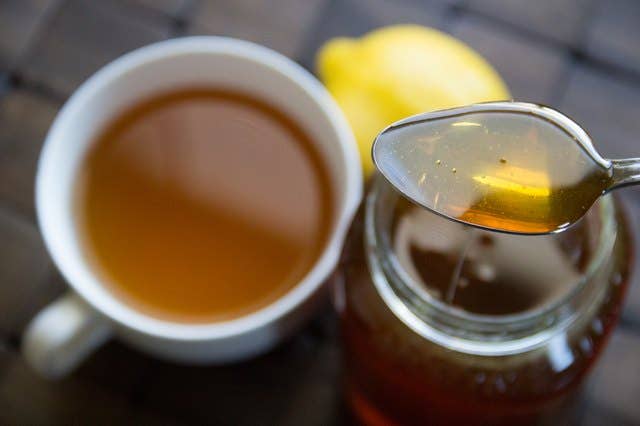Health benefits of this natural sweetener found to lower cholesterol and blood sugar
In the ever-evolving world of nutrition and health, the subject of ‘healthy’ sweeteners remains contentious.

[Oct. 14, 2023: Staff Writer, The Brighter Side of News]
In the ever-evolving world of nutrition and health, the subject of 'healthy' sweeteners remains contentious. (CREDIT: Creative Commons)
In the ever-evolving world of nutrition and health, the subject of 'healthy' sweeteners remains contentious. As more individuals strive for healthier alternatives, there's a growing question at the center of it all: can any sweetener truly be termed 'healthy'?
Historically, most of our sweetening options have come with a caveat. Artificial sweeteners like aspartame have been shown to stimulate the brain's desire for genuine sugar.
A 2007 study featured in Neuroscience & Biobehavioral Reviews labeled sugar as a potential addicting substance due to its release of opioids and dopamine. The Mayo Clinic further elucidates the adverse effects of excessive sugar intake, which includes a heightened risk of heart disease, weight gain, tooth decay, and other health concerns.
Summary plot for the effect of honey consumption on cardiometabolic risk factors. The white squares indicate no downgrades were made, while solid black squares indicate a single downgrade or upgrade was made for each outcome. (CREDIT: Nutrition Reviews)
But recent research may hint at a game changer in this sweetener dilemma: honey.
The Honey Breakthrough
A comprehensive analysis published in Nutrition Reviews delved into the effects of honey on cardiometabolic risk factors, like blood sugar and cholesterol levels. Collating data from 18 controlled trials, the findings were promising. Not only did honey appear to enhance blood sugar control, but it also seemed to better cholesterol levels.
Related Stories
What sets honey apart? According to researchers, it's the sweetener's unique composition: "Honey is a complex composition of sugars (common and rare), organic acids, enzymes, proteins, amino acids, minerals, vitamins, and bioactive substances made by honeybees from the nectar of flowers." Such constituents individually offer health benefits and might aid the body in metabolizing the sugar content more efficiently.
The type of flower or "floral source" from which the honey is derived also plays a role. Not all honeys are created equal, with the study highlighting Robinia honey (also known as "Manuka honey"), clover, and raw honey as particularly beneficial for heart and blood sugar health.
Honey's Double-edged Sword
Lisa Young, PhD, RDN, an esteemed nutritionist and adjunct professor of nutrition at New York University, has previously linked honey to improved blood sugar levels. Speaking to The Healthy @Reader's Digest, Young elaborates, "Honey has a slightly lower glycemic index, so it doesn't affect your blood sugar levels as much as sugar." She further extols honey’s richness in beneficial nutrients like flavonoids, vitamin C, zinc, and potassium.
Summary plot for the effect of raw vs processed honey consumption on cardiometabolic risk factors. The white squares indicate no downgrades were made, while solid black squares indicate a single downgrade or upgrade was made for each outcome. (CREDIT: Nutrition Reviews)
However, the sugar content in honey remains a point of concern. Despite its 'natural' tag, honey is, in essence, an added sugar. There's a propensity for people to overindulge due to honey’s "health halo," a phenomenon where individuals consume more of a food item perceived as healthy. The critical takeaway, as Young emphasizes, is moderation and portion control.
Measuring Sweet Success
To optimize honey's health benefits, it's essential to monitor intake. Young underscores the importance of mindful consumption: "It's crucial to recognize how much honey you're using. Ideally, not more than a teaspoon in tea. And pouring it directly from a bottle can result in overconsumption."
Summary plot for the effect of difference floral sources of honey on cardiometabolic risk factors. The white squares indicate no downgrades were made, while solid black squares indicate a single downgrade or upgrade was made for each outcome. (CREDIT: Nutrition Reviews)
Latoya Julce, RN, BSN, and member of The Healthy @Reader's Digest's Medical Review Board concurs, warning against excessive honey intake.
For context, the American Heart Association (AHA) advises women to restrict their added sugar consumption to 25 grams daily (or six teaspoons) and men to 36 grams (or nine teaspoons). Considering that a single tablespoon of honey contains a staggering 17 grams of sugar, moderation is vital.
The takeaway? While honey's recent accolades as a potentially healthier sweetener are exciting, it's imperative to strike a balance. For those with a sweet tooth, the next time you reach for that honey jar, do so with a measured approach, savoring every drop without compromising your health.
Note: Materials provided above by The Brighter Side of News. Content may be edited for style and length.
Like these kind of feel good stories? Get the Brighter Side of News' newsletter.



